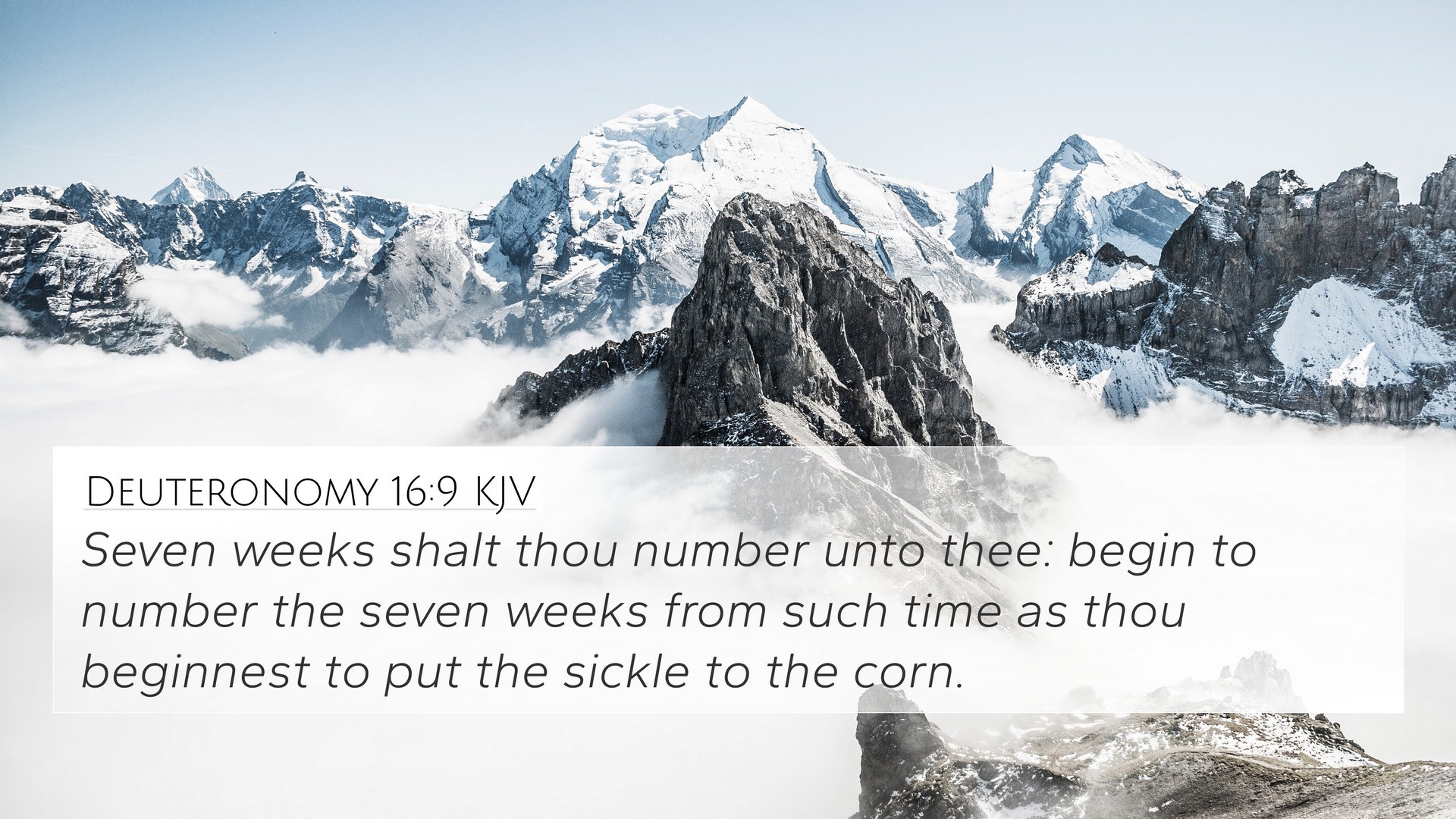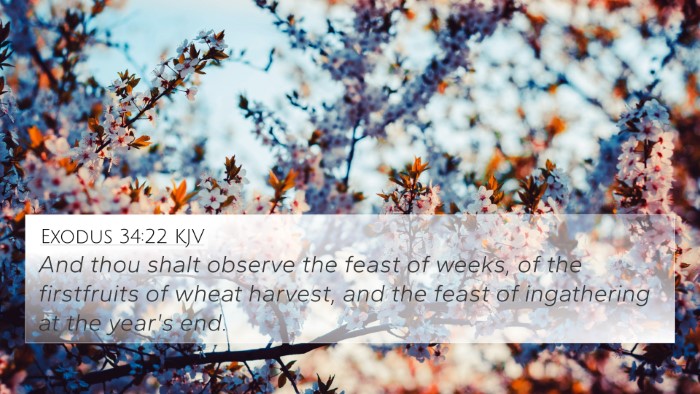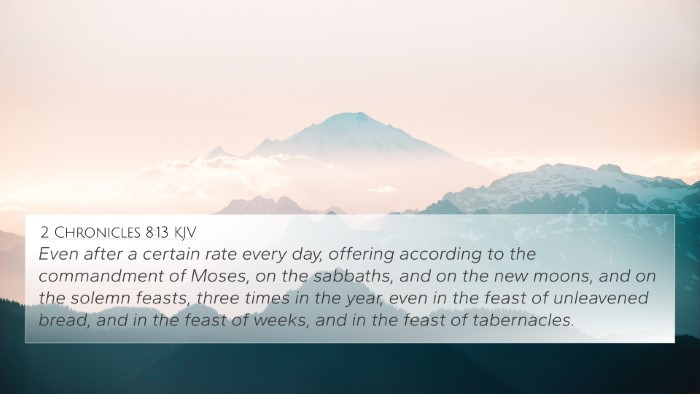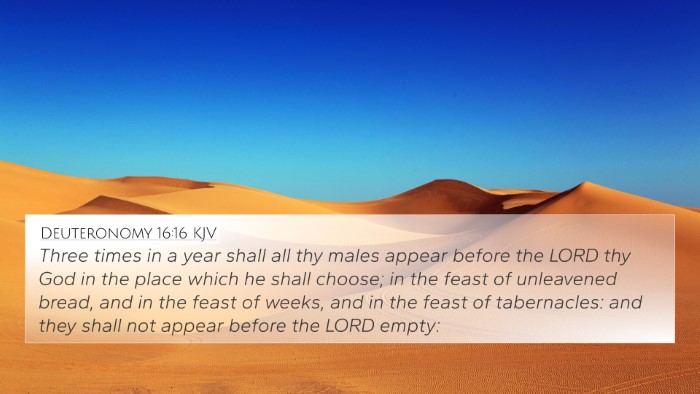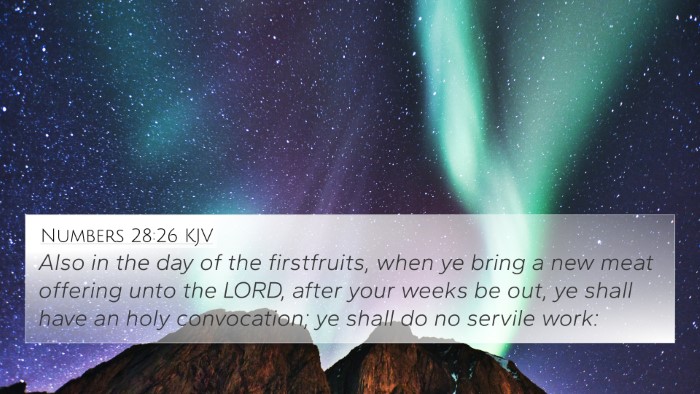Understanding Deuteronomy 16:9
Deuteronomy 16:9 states, "Count off seven weeks from the time you begin to put the sickle to the standing grain." This verse is pivotal in highlighting the importance of time and preparation during the harvest season.
Contextual Significance
The verse appears in a section that instructs the Israelites on observing the Feast of Weeks, also known as Pentecost. This feast is celebrated fifty days after Passover and marks the beginning of the harvest.
The emphasis on counting weeks signifies a structured approach to worship and the acknowledgment of God’s provisions through the harvest.
Commentary Insights
-
Matthew Henry:
Henry notes that this commandment underscores the need to be diligent and mindful about celebrating God's grace. Counting seven weeks not only commemorates God’s provision but also serves as a spiritual discipline, reminding believers of their reliance on divine sustenance.
-
Albert Barnes:
Barnes elaborates on the significance of the Feast of Weeks in relation to the agricultural calendar, emphasizing that the Israelites were to recognize their dependence on God throughout the harvesting process. This period signifies joy and gratitude for the abundance of the harvest.
-
Adam Clarke:
Clarke highlights the notion of preparation, where the act of counting weeks allows the community to unite in worship and thanksgiving for God's blessings. It also serves to foster a sense of anticipation and joy as the Israelites look forward to celebrating together.
Thematic Connections
When exploring the thematic connections in the Bible, Deuteronomy 16:9 resonates with several key verses:
- Exodus 34:22: Highlights the significance of the Feast of Weeks and God’s divine provision.
- Leviticus 23:15-16: Provide details on the counting of weeks and the timing for the Feast of Pentecost.
- Acts 2:1: Connects to the fulfillment of the Feast of Weeks through the outpouring of the Holy Spirit.
- Psalms 126:5-6: Discusses joy in reaping after sowing, paralleling the agricultural theme of the harvest.
- Galatians 6:9: Encourages perseverance in doing good, akin to the patience required during the harvesting season.
- 1 Corinthians 15:58: Relates to the labor of the saints, which can include the spiritual harvest as a key component of Christian life.
- Colossians 3:23-24: The importance of serving the Lord wholeheartedly echoes the commitment seen in counting weeks and engaging in communal worship.
Bible Cross-Referencing Tools
To deepen the understanding and connections between Bible verses, one can utilize various tools for Bible cross-referencing:
- Bible Concordance: A helpful resource to find specific verses and their thematic connections.
- Bible Cross-Reference Guide: Utilizes a comprehensive system to link similar themes across Scriptures.
- Cross-Reference Bible Study: Methods designed to delve deeper into inter-Biblical dialogue and narrative parallels.
- Bible Chain References: A systematic pathway to explore connected themes seamlessly.
- Bible Reference Resources: Tools available in various translations that facilitate comparative verse analysis.
Applying Cross-References
When engaging with Deuteronomy 16:9, it is beneficial to consider the following:
- How to find cross-references in the Bible: Understand specific keywords and themes in the verse to explore related Scriptures.
- Identifying connections between the Old and New Testament: Look for kinds of fulfillment in Christ's teachings and actions.
- Comparative study of Pauline epistles: Examine how Paul's letters reflect the essence of harvest and thanksgiving.
- Interpreting Biblical themes through cross-references: Utilize an integrative approach to derive meanings that resonate with contemporary faith practices.
Conclusion
In conclusion, Deuteronomy 16:9 serves as a significant reminder of the importance of recognizing God's abundant provisions, celebrating community, and engaging in a disciplined worship life. By employing biblical cross-references, one can unveil deeper meanings and thematic connections that enrich understanding and personal faith experiences.
